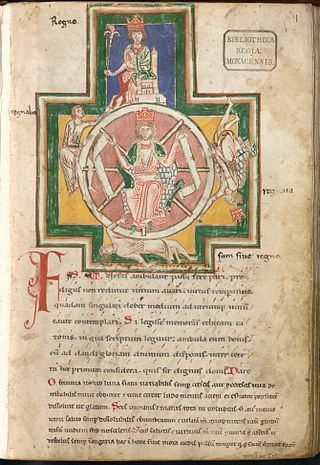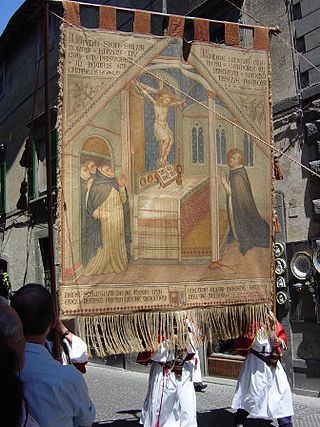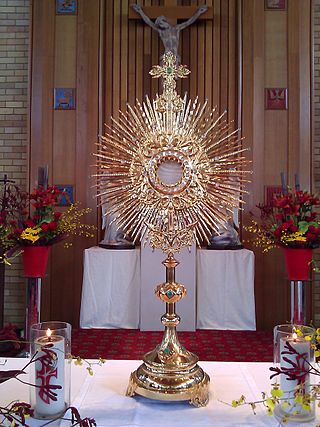Old English literature refers to poetry and prose written in Old English in early medieval England, from the 7th century to the decades after the Norman Conquest of 1066, a period often termed Anglo-Saxon England. The 7th-century work Cædmon's Hymn is often considered as the oldest surviving poem in English, as it appears in an 8th-century copy of Bede's text, the Ecclesiastical History of the English People. Poetry written in the mid 12th century represents some of the latest post-Norman examples of Old English. Adherence to the grammatical rules of Old English is largely inconsistent in 12th-century work, and by the 13th century the grammar and syntax of Old English had almost completely deteriorated, giving way to the much larger Middle English corpus of literature.

This article focuses on poetry from the United Kingdom written in the English language. The article does not cover poetry from other countries where the English language is spoken, including the Republic of Ireland after December 1922.

Piers Plowman or Visio Willelmi de Petro Ploughman is a Middle English allegorical narrative poem by William Langland. It is written in un-rhymed, alliterative verse divided into sections called passus.

The goliards were a group of generally young clergy in Europe who wrote satirical Latin poetry in the 12th and 13th centuries of the Middle Ages. They were chiefly clerics who served at or had studied at the universities of France, Germany, Spain, Italy, and England, who protested against the growing contradictions within the church through song, poetry and performance. Disaffected and not called to the religious life, they often presented such protests within a structured setting associated with carnival, such as the Feast of Fools, or church liturgy.

Medieval literature is a broad subject, encompassing essentially all written works available in Europe and beyond during the Middle Ages. The literature of this time was composed of religious writings as well as secular works. Like modern literature, it is a broad field of study, from the utterly sacred to the exuberantly profane, touching all points in between. Works of literature are often grouped by place of origin, language, and genre.

The Feast of Corpus Christi, also known as the Solemnity of the Most Holy Body and Blood of Christ, is a liturgical solemnity celebrating the real presence of Christ in the Eucharist; the feast is observed by the Latin Church, in addition to certain Western Orthodox, Lutheran, and Anglican churches. Two months earlier, the institution of the Eucharist at the Last Supper is observed on Maundy Thursday in a sombre atmosphere leading to Good Friday. The liturgy on that day also commemorates Christ's washing of the disciples' feet, the institution of the priesthood, and the agony in the Garden of Gethsemane.

The Corporal of Bolsena dates from a Eucharistic miracle in Bolsena, Italy, in 1263 when a consecrated host began to bleed onto a corporal, the small cloth upon which the host and chalice rest during the Canon of the Mass. The appearance of blood was seen as a miracle to affirm the Roman Catholic doctrine of transubstantiation, which states that the bread and wine become the Body and Blood of Christ at the moment of consecration during the Mass. Today the Corporal of Bolsena is preserved in a rich reliquary at Orvieto in the cathedral. The reddish spots on the cloth, upon close observation, show the profile of a face similar to those that traditionally represent Jesus Christ. It is said that the miraculous bleeding of the host occurred in the hands of an officiating priest who had doubts about transubstantiation, Peter of Prague. The "Miracle of Bolsena" is regarded by the Roman Catholic Church as a private revelation, meaning that Catholics are under no obligation to believe it although they may do so freely.

Eucharistic adoration is a devotional practice primarily in Western Catholicism and Western Rite Orthodoxy, but also to a lesser extent in certain Lutheran and Anglican traditions, in which the Blessed Sacrament is adored by the faithful. This practice may occur either when the Eucharist is exposed, or when it is not publicly viewable because it is reserved in a place such as a tabernacle.

Pierce the Ploughman's Crede is a medieval alliterative poem of 855 lines, lampooning the four orders of friars.
The Piers Plowman tradition is made up of about 14 different poetic and prose works from about the time of John Ball and the Peasants Revolt of 1381 through the reign of Elizabeth I and beyond. All the works feature one or more characters, typically Piers, from William Langland's poem Piers Plowman. Because the Plowman appears in the General Prologue to The Canterbury Tales by Geoffrey Chaucer but does not have his own tale, plowman tales are sometimes used as additions to The Canterbury Tales, or otherwise conflated or associated with Chaucer.

John Skelton, also known as John Shelton was an English poet and tutor to King Henry VIII of England. Writing in a period of linguistic transition between Middle English and Early Modern English, Skelton is one of the most important poets of the early Tudor period. Though strongly influenced by the Chaucerian tradition, Skelton is mostly remembered for his poems on everyday themes and invectives, written in an irregular metre now usually called Skeltonics. He also wrote the first secular morality play in English, Magnyfycence, an important landmark in the development of English Renaissance theatre.

Juliana of Liège, was a medieval Norbertine canoness regular and mystic in what is now Belgium. Traditional scholarly sources have long recognized her as the promoter of the Feast of Corpus Christi, first celebrated in Liège in 1246, and later adopted for the Catholic Church in 1264. More recent scholarship includes manuscript analysis of the initial version of the Office, as found in The Hague, National Library of the Netherlands and a close reading of her Latin vita, a critical edition of which was published in French by the Belgian scholar and current (2023) bishop of Liège, Jean-Pierre Delville.

"Lauda Sion" is a sequence prescribed for the Roman Catholic Mass for the feast of Corpus Christi. It was written by St. Thomas Aquinas around 1264, at the request of Pope Urban IV for the new Mass of this feast, along with Pange lingua, Sacris solemniis, and Verbum supernum prodiens, which are used in the Divine Office.
The Wakefield or Towneley Mystery Plays are a series of thirty-two mystery plays based on the Bible most likely performed around the Feast of Corpus Christi probably in the town of Wakefield, England during the Late Middle Ages until 1576. It is one of only four surviving English mystery play cycles. Some scholars argue that the Wakefield cycle is not a cycle at all, but a mid-sixteenth-century compilation, formed by a scribe bringing together three separate groups of plays.
Wynnere and Wastoure is a fragmentary Middle English poem written in alliterative verse around the middle of the 14th century.
Thomas Jackson was an English theologian, and President of Corpus Christi College, Oxford. Originally a Calvinist, he became in later life an Arminian.
Nationality words link to articles with information on the nation's poetry or literature.

"Sacris solemniis" is a hymn written by St. Thomas Aquinas (1225–1274) for the feast of Corpus Christi. The strophe of Sacris solemniis that begins with the words "Panis angelicus" has often been set to music separately from the rest of the hymn. It appears about 1768 in the iberian musical form Vilancete/Villancico at Francesc Morera's "Si el grano divino". Most famously, in 1872 César Franck set this strophe for voice (tenor), harp, cello, and organ, and incorporated it into his Messe à trois voix Opus 12. The hymn expresses the doctrine that the bread and wine are changed into the Body and Blood of Christ. In the Roman Catholic tradition the concept of transubstantiation is presented as an explanation of how this change happens.

Literature in early modern Scotland is literature written in Scotland or by Scottish writers between the Renaissance in the early sixteenth century and the beginnings of the Enlightenment and Industrial Revolution in mid-eighteenth century. By the beginning of this era Gaelic had been in geographical decline for three centuries and had begun to be a second-class language, confined to the Highlands and Islands, but the traditions of Bard poetry in the Classical Gaelic literary language continued to survive. Middle Scots became the language of both the nobility and the majority population. The establishment of a printing press in 1507 made it easier to disseminate Scottish literature and was probably aimed at bolstering Scottish national identity.

Poetry of Scotland includes all forms of verse written in Brythonic, Latin, Scottish Gaelic, Scots, French, English and Esperanto and any language in which poetry has been written within the boundaries of modern Scotland, or by Scottish people.












